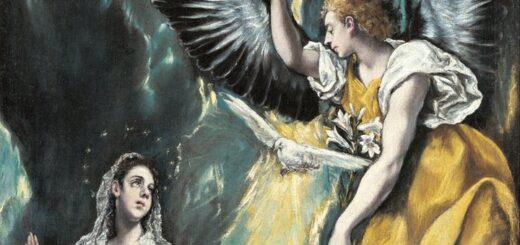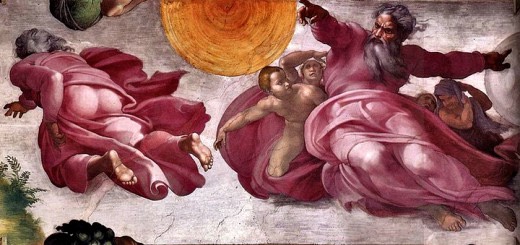The biblical stories of a Torah in transition
Text by Joy Ladin* Published on LGBTQRELIGIOSOCHIARCIVES.ORG (United States). Freely translated by the volunteers of the Gionata project.
For over two thousand years, the Jews have read the Torah (which refers to the five books of Moses who are part of the Jewish Bible, the Antico Testament: Genesis, Exodus, Levitic, Numbers and Deuteronomy), and every time they arrive at the end, they start again from the beginning.
The words do not change, but we do: we return to the same older, stronger, more needy, wiser or more frightened pages than before. The familiarity of the text is a mirror of our transformation.
But for many homosexual Jewish people, bisexuals and trans, Torah is a cruel mirror, which only reflects our extraneousness. When you knew that I would return to teaching to Yeshiva University (US Jewish University) after my men's transition to women, a colleague of mine, the Rabbi Moshe Tendler, declared at the New York Post: "There is no corner of the Torah in which [a transsexual person] can hide as a woman without seriously violating the law, ethics and morality of the Torah ". According to him, the only thing that Torah had to tell me was that my very existence was a violation.
Fortunately, my students thought differently. Their attitude was respectful, compassionate, often even far -sighted. The same Torah that for Tendler was a confirmation of his transfobia, for them it was an invitation to understand an aspect of human experience that perhaps they had never stopped to consider.
Many of them study the Torah since childhood, and some have asked me how my transition has changed my way of reading it. A question that, until then, I had never asked myself. Of course, the transition has transformed every aspect of my life, but my relationship with the Torah?
I started reading her every day as a young man with a beard; Today, as a middle -aged woman in the making, I read it still every day, following the weekly cycle of parashot. I always find it enigmatic, fascinating, at times frightening or boring. I continue to be attracted more by the stories of dysfunctional families than by the laws on sacrifices.
Since childhood - even if the world saw me as a child - the character who fascinated me most was God. It seemed to me that God and I had very common. (Of course, I also identified myself with Spock of Star Trek and, in my unbridled dreams, with Barbara Eden in I Dream of Jeannie).
God and I was both alien beings, unable to relate to humans, constantly poised between the desire for connection and the bitterness of never being able to be understood. Both unique, invisible, in search of a recognition that always seemed to escape us.
But there was a verse in the Torah who persecuted me: "A woman will not wear men's clothes, nor a man will wear women's clothes, since anyone who does it is abominable in the eyes of your Lord " (Deuteronomy 22: 5). For years I tried to ignore it, but it was impossible. It was the only point where the Torah seemed to recognize my existence - and he did it by condemning me.
As a child, in the rare moments when I was alone in the house, I went up to the attic and I wore the unwilling clothes of my younger sister. It was not a gesture of self -affirmation: those clothes would never have entered me, and wearing them only amplified my pain. But I knew I had to do it. And that verse of the Torah told me that God hated me for this.
This interpretation seemed right to me, but what possibility were there that a god disgusted by the transvestism took the trouble to analyze my particular case? God would first abhor, then asked questions. Still, I continued to dress as a girl. I couldn't do without it.
Perhaps this was the key: the hungry Jews can eat non Kosher food if it is the only way to survive. I was dying from the desire to be a girl and female clothes were the only nourishment for my soul.
Perhaps the law meant: God will hate you if you disguise yourself, unless you need it. God had given me boy, but with the desperate need to be a girl. How could he hate me to be what he created me to be?
Unfortunately, neither God nor did I feel comfortable with the idea that my desire to be female transcended the law of the Torah. The point was not my behavior, but my essence. I was a trans person, someone born to wear clothes of the opposite genre. That verse of Deuteronomy did not move away from God; He showed me that God and I had something in common: we could despise ourselves together.
For some trans Jewish people, it is here that their relationship with Torah stops. But I have never abandoned him. Something pushed me to continue reading.
In that complex and often frightening writing, I perceived an echo of truth. I do not mean that the Torah convinced me that the world was created in six days, but its enigmatic way of telling reality, its resistance to reduce life, humanity and events to simple declarations, they spoke to me deeply.
For example, when Moses asks God what his name is, God does not respond by his own name, but with a paradoxical affirmation:
"Moses said to God: 'Here, when I go to the children of Israel and tell them: the God of your fathers sent me to you, they will ask me: what is his name?'. What will I have to answer? "
"God replied to Moses: 'Ehyeh Asher Ehyeh'" (Exodus 3: 13-14).
I fascinated the fact that this expression could be translated into two different ways. Ehyeh Asher Ehyeh can mean I am the one who I am, a tautological declaration that identifies God with being pure and immutable, beyond human reality. But it can also mean I will be what I will be, a dynamic affirmation, which presents God as a process of becoming, an energy always on the move, which turns and realizes in the world.
The Torah transformed the existential paradoxes that had brought me on the verge of suicide in the foundation of identity and truth itself.
Torah's narration manages to present this multifaceted and contradictory truth because it suppresses subjectivity. There is almost never direct attention to the emotions and perceptions of the characters. Torah describes a broad spectrum of human feelings- from fear to love, from anger to devotion- but his voice always remains detached. He tells the murder of Abele and the love of Jacob to Rachele with the same coldness.
This cold and distant narrative style seemed incredibly true to me. Before my transition, I lived in a state of constant dissociation. I was so disconnected from my emotions that I wasn't even sure I had.
The Torah, with its emotional detachment, reflected me perfectly. My emotional rigidity, which made the joys and pains of my peers incomprehensible for me, made me feel less human. But when I read the Torah, my dissociation seemed something noble: instead of making me feel less human, it made me feel closer to God.
But with the transition, everything has changed. The ties between body and mind, necessary to feel emotions, have become stronger and stronger. At the beginning, I was overwhelmed: pain and desire, anguish and enthusiasm overwhelmed me. "How do people live with all these emotions?"I asked a friend. "Do they always feel so much about everything? " For me, until then, the emotions had come individually, from afar, as exhausted messengers after a long journey. Now, however, I was immersed in them.
I no longer see feelings as natural catastrophes, but I still feel like a character of an old black and white film that suddenly finds himself in a color world. Everything is more vivid, more intense. The world shines with love and anguish, generosity and danger. And my relationship with Torah has changed accordingly.
That emotional distance that once made me feel at home now irritates me. Where is the wealth of emotions that I now feel so intensely? Where is the fear of Adam and Eva, the torment of Cain and Abel, Sara and Abraham's love?
Now I know that the rabbinic tradition has filled many of these gaps with the midrash (interpretative stories that enrich the biblical narrative). But what I understood with my transition is that the vitality of the Torah depends on the emotional urgency that we bring them.
If we do not insist so that Torah speaks to our needs, our fears, our desires, then it is reduced to an ancient collection of laws, an archaeological find instead of a life tree.
And so, even now that my life seems immensely far from the Torah, I continue to go back, asking her to talk to me about the most urgent questions for me: who am I? What does it mean to be human?
* Joy LadinHe is an American poet and essayist, known for having been the first openly transgender teacher in an Orthodox Jewish institution. He has published twelve books, including the autobiography "Through the Door of Life: A Jewish Journey Beteween Genders" (2012) and "The Soul of the Stranger: Reading God and Torah from Acturender Perspective" (2018). His works explore issues related to gender identity and spirituality, offering a unique perspective that combines personal experience and literary analysis.
Original text: Torah in Transition






